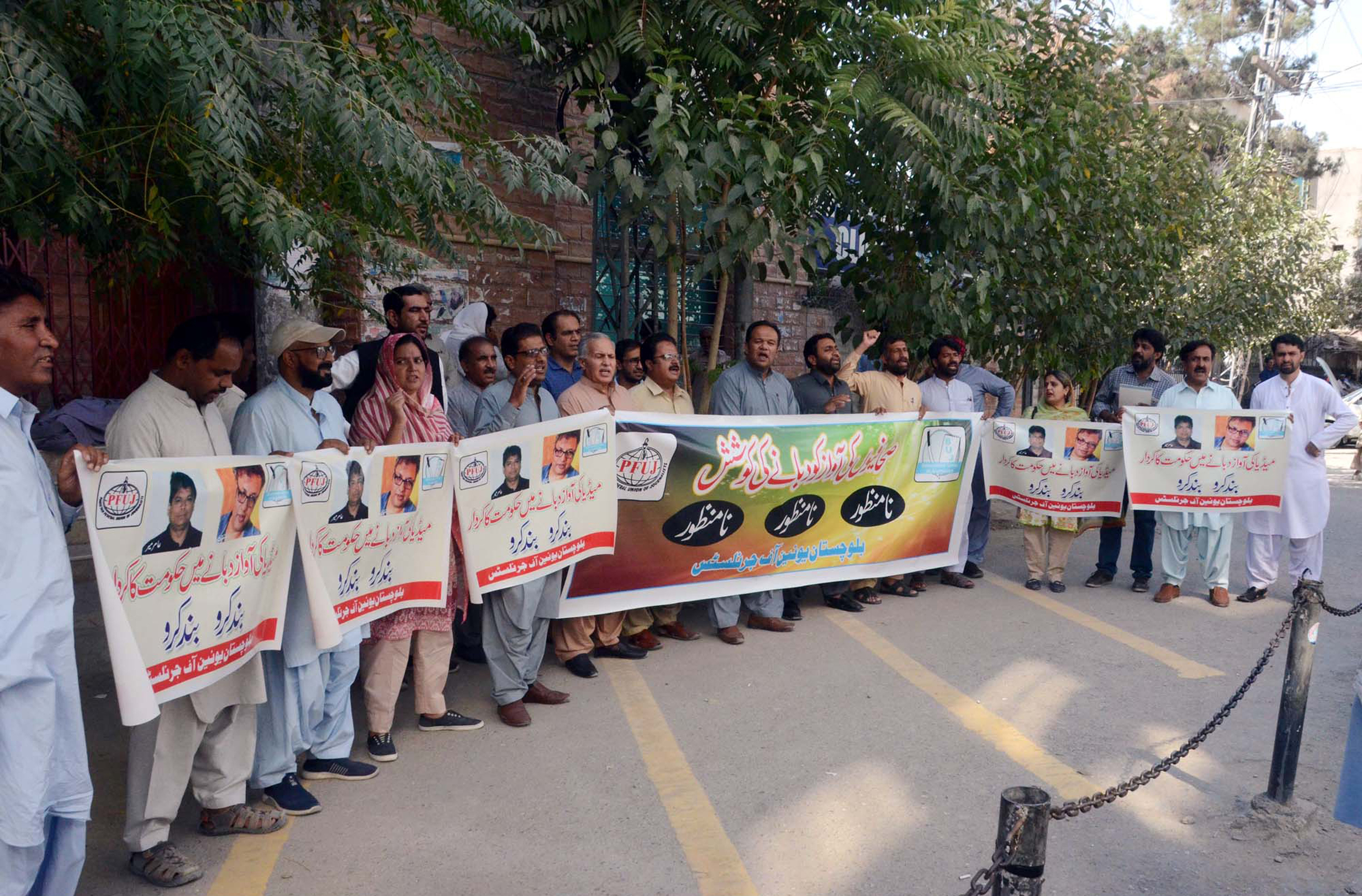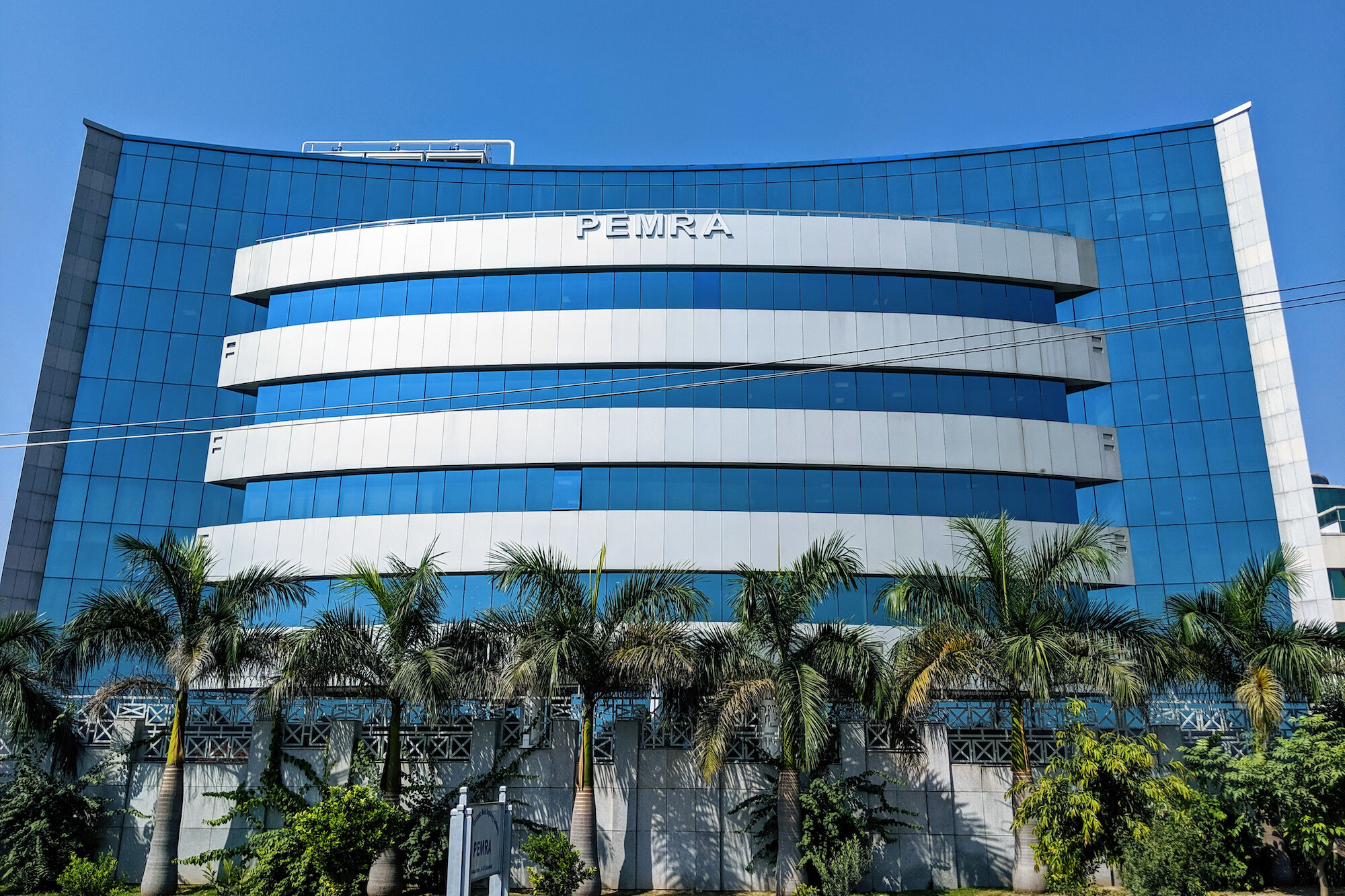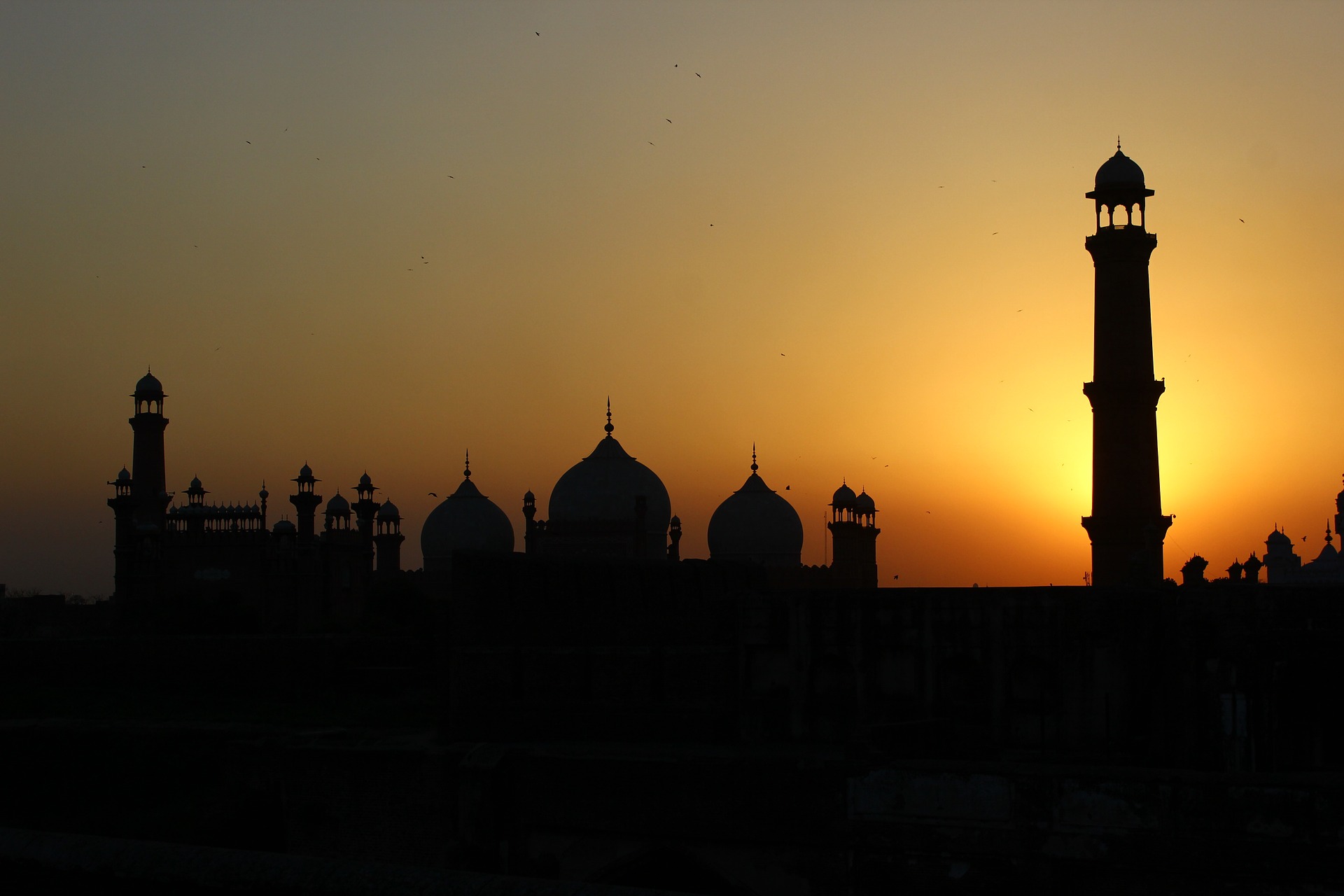Pakistan: Journalists face Contempt of Court charges
17th January 2022
Journalists face contempt charges for publishing a report revealing corruption, yet another attempt to suppress independent media in Pakistan.

Three media workers face Contempt of Court charges at the Islamabad High Court. They include journalists from The News International newspaper: Editor of Investigations Ansar Abbasi and Editor Aamir Ghauri, as well as the Editor-in-Chief and owner of the Jang media group (which owns The News International), Mir Shakil-ur-Rahman.
An article written by Abbasi, published on 15 November 2021, featured an affidavit signed by Rana Shamim, the former Chief Justice of the Gilgit-Baltistan region, which revealed alleged judicial collusion by former Chief Justice of Pakistan, Mian Saqib Nisar. According to a report by Reporters without Borders (RSF), Nisar allegedly denied bail of jailed members of the opposition party, the Pakistan Muslim League-Nawaz (PML-N), before the July 2018 general elections. RSF highlighted the gravity of these findings by The News International: the denial of bail may have affected the outcome of the 2018 elections. In an initial hearing, Abbasi confirmed that the affidavit had been verified by Shamim, and that the story was published because it was in the public interest.
“Pakistan’s media often feels like one big TV with the remote control not in the hands of the public but the powerful” – Journalist Warda Imran
The indictment hearing has been deferred to 20 January. National and international journalist unions and civil society organisations are calling for the charges to be dropped. It is feared that the charges would have “repercussions” for the future of investigative journalism and media freedom in Pakistan. The Pakistan Press Foundation (PPF) wrote: “The media has a responsibility to inform the public of important developments and the contempt proceedings undermine their ability to do so.”
Journalists in Pakistan are working in an increasingly hostile environment for media freedom. Journalist Warda Imran was quoted by the Reuters Institute saying, “Pakistan’s media often feels like one big TV with the remote control not in the hands of the public but the powerful.”
Female journalists continue to face online harassment; legislation is used to silence government critics; and a culture of impunity persists. In its 2021 Global Impunity Index, the Committee to Protect Journalists (CPJ) ranked Pakistan as one of the world’s worst countries for journalist killings. In 2020, Mir Shakil-ur-Rahman spent more than 200 days in prison before being released on bail. His imprisonment was related to unproven allegations about property transactions dating back to 1986.
These are the countries with the worst records of allowing killers of journalists to go free, according to CPJ’s 2021 Impunity Index:
Somalia
Syria
Iraq
South Sudan
Afghanistan
Mexico
Philippines
Brazil
Pakistan
Russia
Bangladesh
India
#EndImpunity https://t.co/c2pYbUDYBG pic.twitter.com/eIrUHVnupe— Committee to Protect Journalists (@pressfreedom) October 28, 2021
The Public Media Alliance supports urgent calls to drop the arbitrary charges against the three journalists. We also urge authorities to recognise the importance of independent, public interest journalism and to put an end to the culture of impunity in Pakistan. By, intimidating, punishing and preventing journalists and media practitioners from doing their jobs – holding power to account and accurately reporting stories in the public interest – the public are also punished by being deprived of access to trusted and verified information, and of vital resources that ultimately help to strengthen democracy.
In other news:
Audio leaks: Dawn recently reported that a leaked audio clip from a phone conversation between leaders of the PML-N party revealed their “abusive language against senior journalists and anchorpersons”. The Pakistan Federal Union of Journalists (PFUJ) voiced their concerns and described the leak as “alarming” as it “showed the mindset of political leadership against media and independent journalists.”
Media authority in “retreat”? A report from The News on Sunday suggested the government has retreated from its proposed law to bring all types of media under one centralised regulatory body. This would include print, broadcast and social media, as well as cinema and book publications. The idea was met with strong opposition from journalist unions, civil society organisations and opposition parties who expressed serious concerns that the proposed Pakistan Media Development Authority (PMDA) would irreversibly change Pakistan’s media landscape and be final blow to the country’s deteriorating media freedom.
Journalist safety bill revised: The Protection of Journalists and Media Professionals Act 2021, which was passed in November, is currently being amended to include photo and video journalists. A group of video journalists met with the Information Minister, Fawad Chaudhry, earlier this month to explain the need for photo and video journalists to be protected under the law, given the difficult conditions they work under. While some media organisations welcomed the passage of the law – seeing it as a positive step towards improving journalist safety in Pakistan – others expressed their scepticism around potential loopholes to impose new censorship and intimidation under the guise of protecting journalists. RSF argued that vaguely-worded Section 6 of the law “prohibits all journalists and media professionals from spreading “false information” and producing material that “advocates hatred” or constitutes “incitement to discrimination, hostility or violence” – without clearly defining what any of these terms means.”
New international TV station: A joint television channel is due to be launched between Pakistan, Turkey, and Malaysia to promote “media cooperation” between the three countries and to challenge extremism both domestically and in other Muslim countries. News about the joint venture first arose in 2019. A sceptic quoted by VOA noted that the issue of islamophobia goes much deeper, and unless the channel had a “robust intellectual foundation”, the TV channel “would have no worth, except a reactionary propaganda tool.” The media landscape in the three countries is also of concern. According to RSF’s 2021 World Press Freedom index, Malaysia ranks 119th, Pakistan 145th and Turkey 153rd out of 180 countries.
On all these matters, we will continue to monitor and provide updates as the situation develops.
Related Posts
21st September 2021
Pakistan: Media representatives “strongly opposed” to proposed media authority
Media workers in Pakistan continue to…
16th August 2021
New regulator could further restrict media freedom in Pakistan
While PMA welcomes comments that…
23rd February 2021
Pakistan: Geo and Jang Media Group’s office attacked by protesters
Protesters entered the office of Geo…


